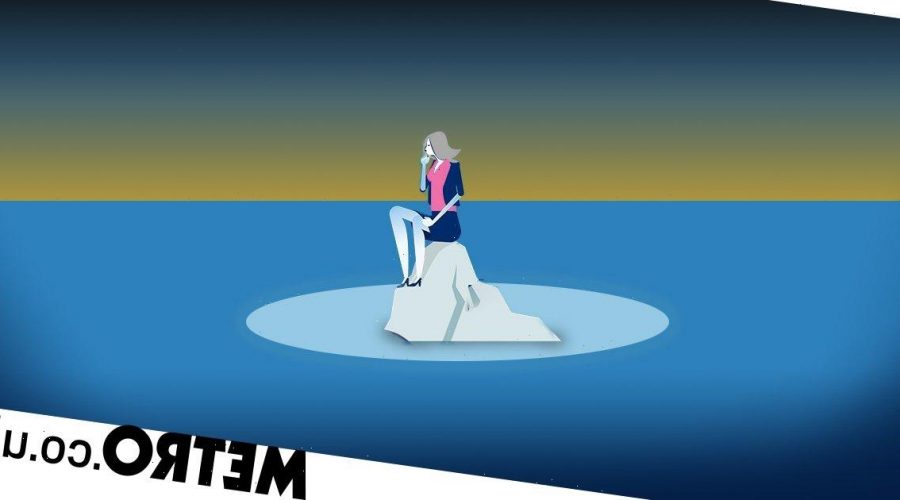How to deal with climate anxiety amid a heatwave

Ecoanxiety can rumble on in the background year-round, but when we’re confronted with the reality of climate change in summer – from unbearable heat and wildfires to end-of-times style thunderstorms – it’s hard to ignore it.
Being conscious of the climate crisis isn’t a bad thing.
After all, burying our heads in the sand isn’t just unrealistic, it could also be dangerous – denying the truth could mean we don’t take action to combat rising temperatures.
But the problem comes when ecoanxiety overwhelms us.
When climate change anxiety is hitting us too hard, we can be paralysed into a state of doing nothing, or can see our mental health seriously suffer.
So, how do we tackle ecoanxiety, and repurpose it for good? That’s what we cover in this week’s episode of our mental health podcast, Mentally Yours.
‘There’s this huge range of ways in which climate change is affecting and interacting with our mental health and wellbeing,’ Dr Emma Lawrence, mental health innovations fellow at The Institute of Global Health Innovation at Imperial College London.
‘The climate crisis is increasing global temperatures, and we’re seeing more extreme heatwaves, more frequent heatwaves, more floods, fires, and droughts. If you directly experience these things, this has mental health effects that we’re seeing in our research.
‘Mental health can be affected by the heat. We see things like, unfortunately, a higher suicide risk at higher temperatures, more people coming to emergency services with worse symptoms of mental illness, and also the general popluation, we can feel more cranky, we’re sleeping less, there’s more conflict – that’s one example of the direct effects.
‘But there are also psychological effects of just hearing about these things. It’s understandable to be really scared, anxious, and maybe angry when we think about the climate crisis and where we’re at.’
Ahead, we share some of the key takeaways from our chat with Dr Emma on how to navigate the anxiety that comes with living in a climate crisis.
Don’t dismiss your concerns
‘It’s important that you know it’s okay to hold these uncomfortable emotions that we can feel in response to thinking about the climate crisis,’ says Dr Emma.
You’re not being silly or unreasonable to worry about climate change – it’s a very real thing, and it’s natural to be upset, angry, or anxious. Give yourself permission to feel strong emotions.
‘It’s healthy to care,’ Dr Emma adds. ‘It’s an empathetic caring response to be worried about this and worried about other people being impacted.’
Seek support
If you’re starting to find ecoanxiety overwhelming, don’t suffer alone. Talk to your GP about accessing counselling to equip you with tools to manage anxiety in a healthier way.
Use your worries as motivation to act
It’s easy to feel powerless in the face of a global crisis, which only adds to anxiety. But you can take action. Just remembering this, and taking steps to do your bit, can be powerful in improving your mental state.
‘Putting pressure on leaders to act is vital and urgent,’ says Dr Emma. ‘There’s doing that collectively, with groups and organisations, and demanding change is really important – it can be really helpful for people’s mental health as well.
‘The more that we can work together, the more we can push towards a world that cares for people and planet, the better it’s going to be for our mental health and the better for a safer climate.’
You can listen to Mentally Yours on Spotify, Audioboom, and Apple Podcasts.
To chat about mental health in an open, non-judgmental space, join our Mentally Yours Facebook group.
Follow us on Twitter at @MentallyYrs.
Source: Read Full Article
